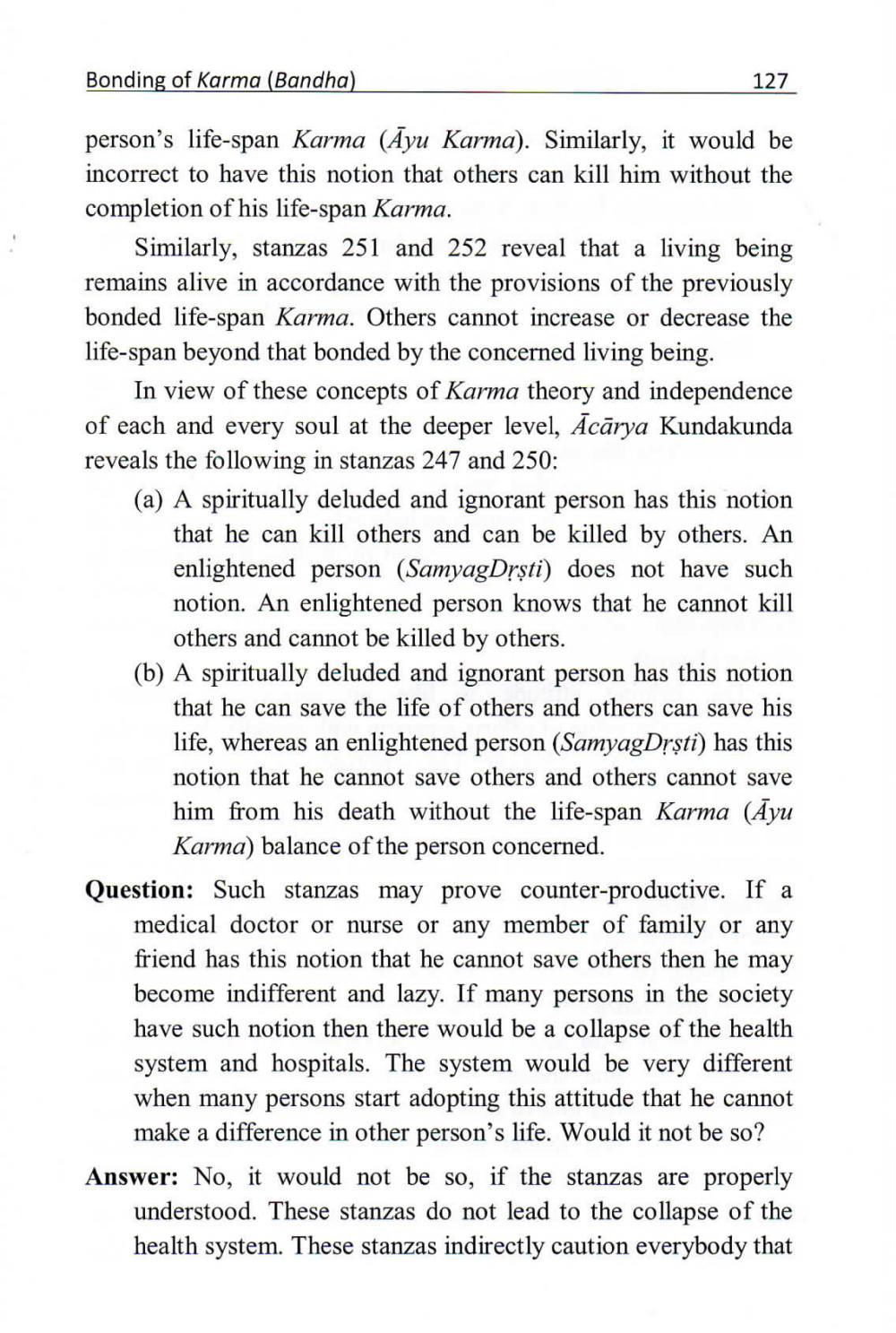________________
Bonding of Karma (Bandha)
127
person's life-span Karma (Āyu Karma). Similarly, it would be incorrect to have this notion that others can kill him without the completion of his life-span Karma.
Similarly, stanzas 251 and 252 reveal that a living being remains alive in accordance with the provisions of the previously bonded life-span Karma. Others cannot increase or decrease the life-span beyond that bonded by the concerned living being.
In view of these concepts of Karma theory and independence of each and every soul at the deeper level, Ācārya Kundakunda reveals the following in stanzas 247 and 250: (a) A spiritually deluded and ignorant person has this notion
that he can kill others and can be killed by others. An enlightened person (SamyagDrști) does not have such notion. An enlightened person knows that he cannot kill
others and cannot be killed by others. (b) A spiritually deluded and ignorant person has this notion
that he can save the life of others and others can save his life, whereas an enlightened person (SamyagDrști) has this notion that he cannot save others and others cannot save him from his death without the life-span Karma (Āyu
Karma) balance of the person concerned. Question: Such stanzas may prove counter-productive. If a
medical doctor or nurse or any member of family or any friend has this notion that he cannot save others then he may become indifferent and lazy. If many persons in the society have such notion then there would be a collapse of the health system and hospitals. The system would be very different when many persons start adopting this attitude that he cannot
make a difference in other person's life. Would it not be so? Answer: No, it would not be so, if the stanzas are properly
understood. These stanzas do not lead to the collapse of the health system. These stanzas indirectly caution everybody that




